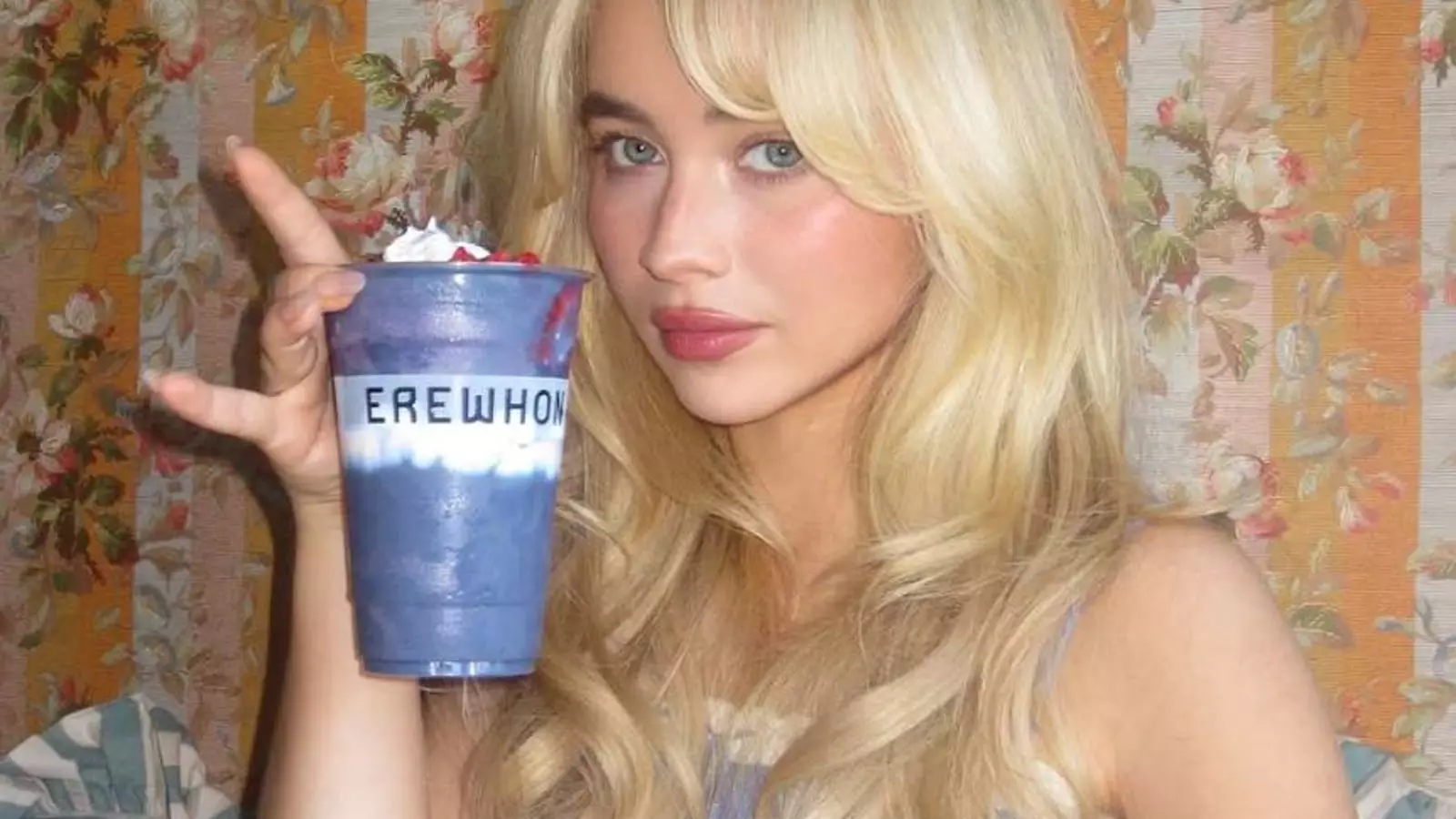In Samuel Butler’s groundbreaking novel *Erewhon*, released in 1872, illness is met with social condemnation, treating health as a moral obligation rather than a personal state of being. Fast forward to today, and the term “Erewhon” has morphed from literary satire into a vibrant symbol of wellness culture, encapsulated in a high-end grocery store that has captivated the affluent masses in Los Angeles. Here, health isn’t merely an aspiration; it’s a performance layered with social significance and a staggering price tag. With $22 smoothies and $19 strawberries, Erewhon is not simply redefining grocery shopping; it is commodifying a lifestyle that reflects both desire and exclusivity.
Erewhon operates not just as a grocer, but as a curated health sanctuary where choices about food reflect deeper moral implications. Each aisle presents a binary decision: is the smoothie enriched with adaptogens or just a regular fruit blend? Is this dairy raw or pasteurized? What emerges from these questions is not merely a conversation about good nutrition but a cultural narrative that conflates health with virtue. Shopping at Erewhon means engaging in a ritualized act of consumption where every item signifies adherence to an aspirational lifestyle.
The Evolution: From Humbleness to Haughtiness
Originally founded in 1966 by Michio and Aveline Kushi, the first Erewhon was a modest health food store rooted in the principles of the macrobiotic movement. The ethos of simplicity and wholesomeness served a countercultural audience seeking alternatives to mainstream dietary practices. However, as Erewhon migrated to Los Angeles, its identity evolved from a grassroots operation into a commercially-driven brand that capitalizes on the burgeoning wellness industry. This transformation illustrates not just a change of location but a pivotal shift in consumer behavior, as wellness became an economic powerhouse.
The current iteration of Erewhon—the ten bougie locations scattered throughout Los Angeles County—resembles a chic boutique more than a traditional supermarket. The stores boast meticulously organized shelves, adorned with items that range from exotic imports to concoctions designed for celebrity patrons. The lighting glows invitingly, mirroring a high-end fashion outlet more than a corner grocery. This careful design speaks to a new kind of shopping experience where the products themselves are secondary to the lifestyle they convey.
Illness as Neglect: The Ideology Behind Purchases
Erewhon embodies a philosophy that equates dietary choices with moral superiority. The message is a resoundingly clear one: to consume healthy is to embody righteousness; to neglect one’s health signifies moral failing. The infrastructure around wellness at Erewhon promotes a sense of elitism, where neglecting to embrace this dietary dogma becomes a social stigma. The irony here is rich—just as Butler critiqued Victorian norms through his fictitious realm of Erewhon, today’s grocery can be seen as a parody of its own privilege and exclusivity.
Every high-priced item at Erewhon offers more than its nutritional value; it signifies access to an exclusive community built around the pursuit of high-status wellness. Purchasing a $20 smoothie becomes an act of not just sustenance but a declaration of membership into an elite lifestyle. The notion that health is attainable through diligent consumption of premium products further embeds the idea that illness or neglect stems from a lack of effort or financial commitment.
The Wellness Spectacle and Celebrity Culture
The phenomenon of Erewhon captures the intersection of wellness and celebrity culture, where the act of shopping is an event. Celebrity endorsements and partnerships have pushed Erewhon into the media spotlight, making it a hotspot for the rich and famous. Smoothies named after stars like Hailey Bieber not only boost the store’s visibility but also align its image with that of aspirational living. This elevation of grocery shopping into an act worthy of public attention speaks volumes about our cultural psyche—health is not only about nourishment; it is a performance to be seen and envied.
At Erewhon, wellness morphs into a spectacle, creating a shopping experience that resonates heavily on social media. Every wellness item exists within a vacuum of curated images and polished aesthetics, inviting consumers to not just buy health, but to demonstrate it as well. The plant-based, organic ethos becomes an aesthetic choice as much as a lifestyle commitment. This continual reinforcement of perfection creates an insatiable cycle—customers must always be on the lookout for the latest health trend, endlessly curated and modified to fit aesthetically into their Instagram feeds.
Utopia or Dystopia? A Reflection on Societal Values
While Erewhon’s existence may seem harmless, its cultural implications evoke a range of reactions. It provokes critical dialogue about the commercialization of health, suggesting that as a society, we may have lost sight of what it means to be genuinely healthy in favor of appearing healthy. In many ways, Erewhon plays a duplicitous role; it can be seen as both a shrine to wellness and a mocking reflection of our consumer-driven values. The store is a tangible realization of Butler’s warnings—where wellness escapes into privilege, leaving those who cannot afford its prices in a state of societal invisibility.
Erewhon’s success signals a troubling acceptance of high-cost wellness as a norm. The implications that arise from this shift urge us to reconsider the moral frameworks we attach to health and illness. In this world driven by consumption and aesthetic perfection, the barriers separating privilege from necessity grow alarmingly thin, challenging us to reflect on what true health and well-being should look like in our modern society.


Leave a Reply